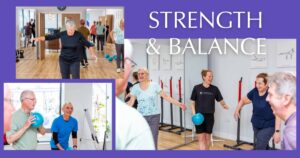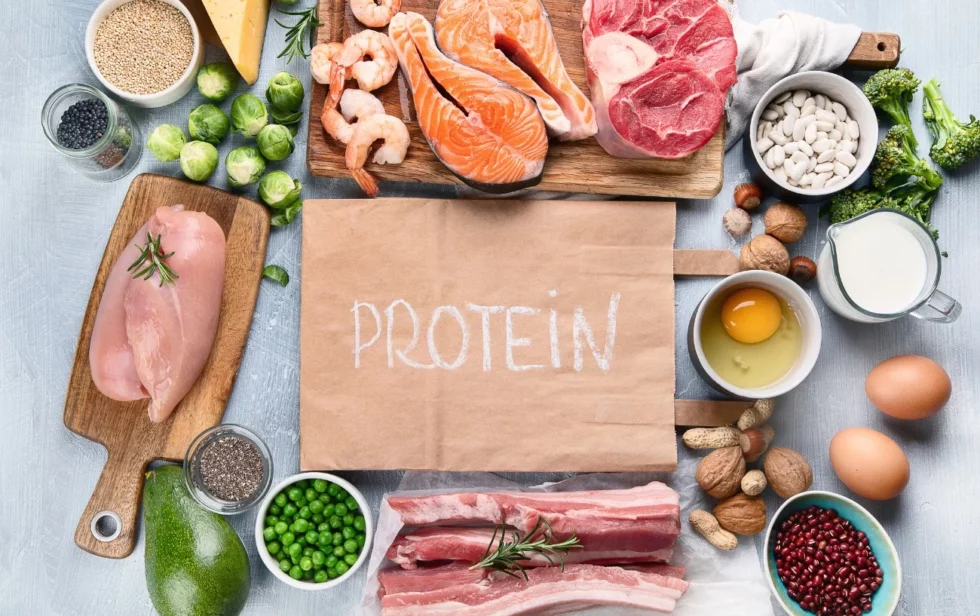Previously we have talked about the importance of regular resistance training in our blog The secret to maintaining bone strength, reducing falls and maintaining your independence. However pumping all that iron isn’t going to be as effective unless you put the right type of fuel in the tank.
As we cross the threshold into our 40s, maintaining our health and fitness becomes increasingly important. One key aspect of this is preserving muscle mass. While it’s natural for muscle mass to decline with age, there are ways to slow down this process, and protein dietary intake plays a pivotal role. In this blog, we’ll explore the importance of protein for people aged 40 and above in British English.
MUSCLE MASS ACTS LIKE BODY ARMOUR

Sarcopenia, the age-related loss of muscle mass and function, can begin as early as our 30s and accelerates in our 40s and beyond. This muscle loss can have significant consequences, including reduced strength, mobility, and overall quality of life. However, a well-balanced diet, particularly one rich in protein, in combination with regular resistance training can help counteract these effects. In fact the amount of protein we need to help build and maintain muscle mass increases as we get older.
PROTEIN’S MUSCLE-BUILDING MAGIC

Protein is often referred to as the building block of life, and for good reason. It contains amino acids, the essential compounds required for muscle growth and repair. Here’s why protein is particularly vital for individuals over 40:
- Muscle Preservation: A sufficient intake of protein helps counteract muscle loss by providing the amino acids needed for muscle protein synthesis. This means you can maintain more of your muscle mass, reducing the risk of frailty and falls.
- Metabolism Boost: Protein has a higher thermic effect than fats or carbohydrates, meaning it burns more calories during digestion. This can help combat age-related weight gain and metabolic slowdown.
- Satiety and Weight Management: Protein-rich meals tend to keep you feeling full and satisfied for longer, reducing the chances of overeating and promoting healthy weight management.
HOW MUCH PROTEIN DO YOU NEED?
The Recommended Dietary Allowance (RDA) for protein is 0.8 grams of protein per kilogram of body weight. However, many experts suggest that older adults may benefit from a higher protein intake, ranging from 1.2 to 2.2 grams of protein per kilogram of body weight, depending on their activity level and overall health.
SOURCES OF PROTEIN
To meet your protein needs, incorporate a variety of protein sources into your diet:
- Lean Meats: Chicken, turkey, and fish are excellent sources of high-quality protein.
- Dairy: Low-fat milk, yogurt, and cheese are rich in protein and provide calcium for bone health.
- Plant-Based Options: Beans, lentils, tofu, and tempeh are great choices for vegetarians and vegans.
- Nuts and Seeds: Almonds, peanuts, chia seeds, and flaxseeds offer protein and healthy fats.
- Eggs: Eggs are a versatile protein source, rich in essential amino acids.
- Protein Supplements: Protein shakes and powders can help you reach your daily protein goal, but whole food sources are generally preferable.
WHICH MEALTIME IS THE MOST IMPORTANT?

Research has suggested that as well as having enough protein in your diet the time of day that you consume it can also provide a muscle boosting stimulus. Having a minimum of 30-50g of protein at breakfast time has been shown to provide a further stimulus in helping your body build muscle.
For individuals aged 40 and above, preserving muscle mass is crucial for maintaining strength, mobility, and overall well-being. Protein dietary intake plays a central role in achieving this goal. By ensuring an adequate and diverse protein intake, you can slow down the age-related muscle loss process and enjoy a healthier, more active life.
DON’T KNOW HOW OR WHERE TO START YOUR RESISTANCE TRAINING?

At Kendal Physio & Well-being centre we understand that starting resistance training can be scary, difficult and a somewhat daunting task if you’ve never done it before. That’s why we created our strength and balance classes a 2 month twice a week exercise programme run by qualified physiotherapists. If you would like to find out more details please contact our reception team on 01539 725220 or email enquiries@kendalphysio.co.uk
Don’t forget to consult with a healthcare professional or registered dietitian to determine your specific protein needs and create a personalised nutrition plan that suits your lifestyle and health goals.
